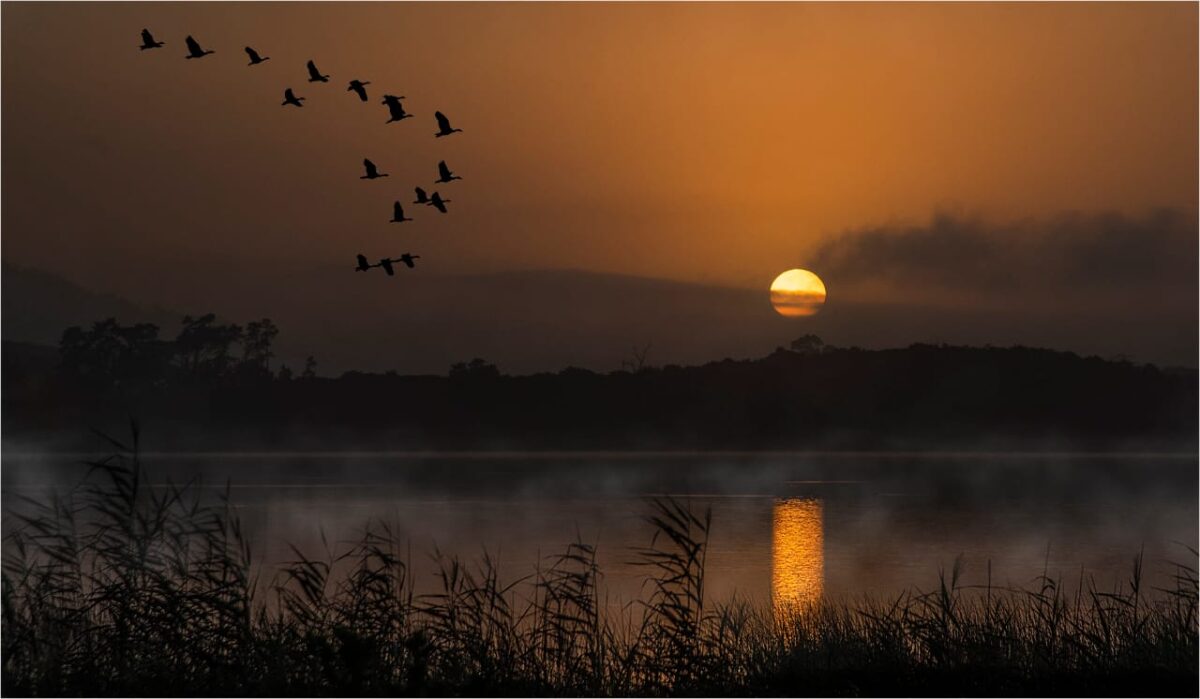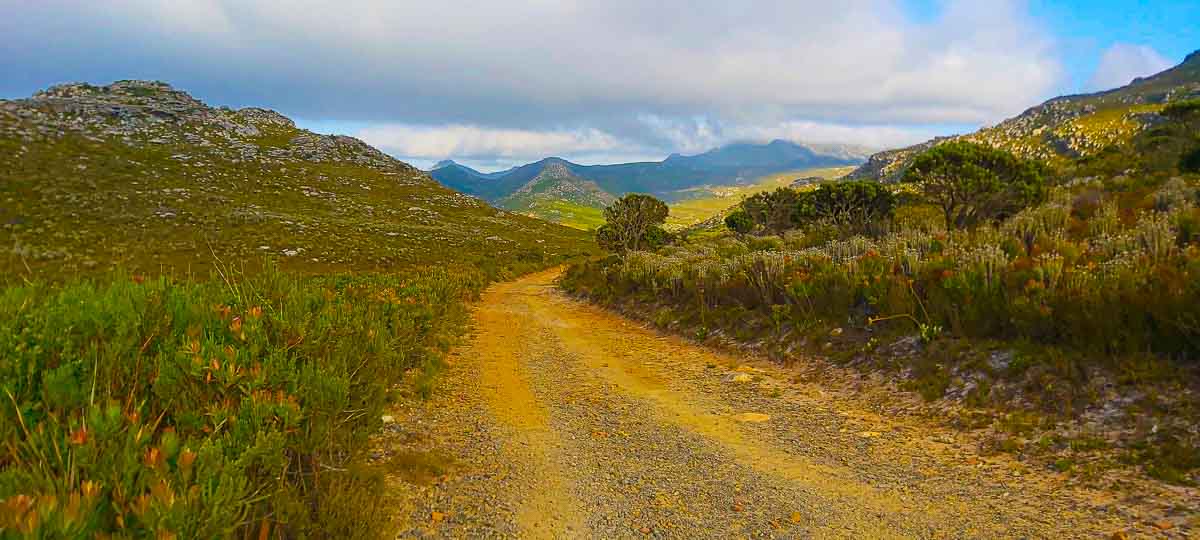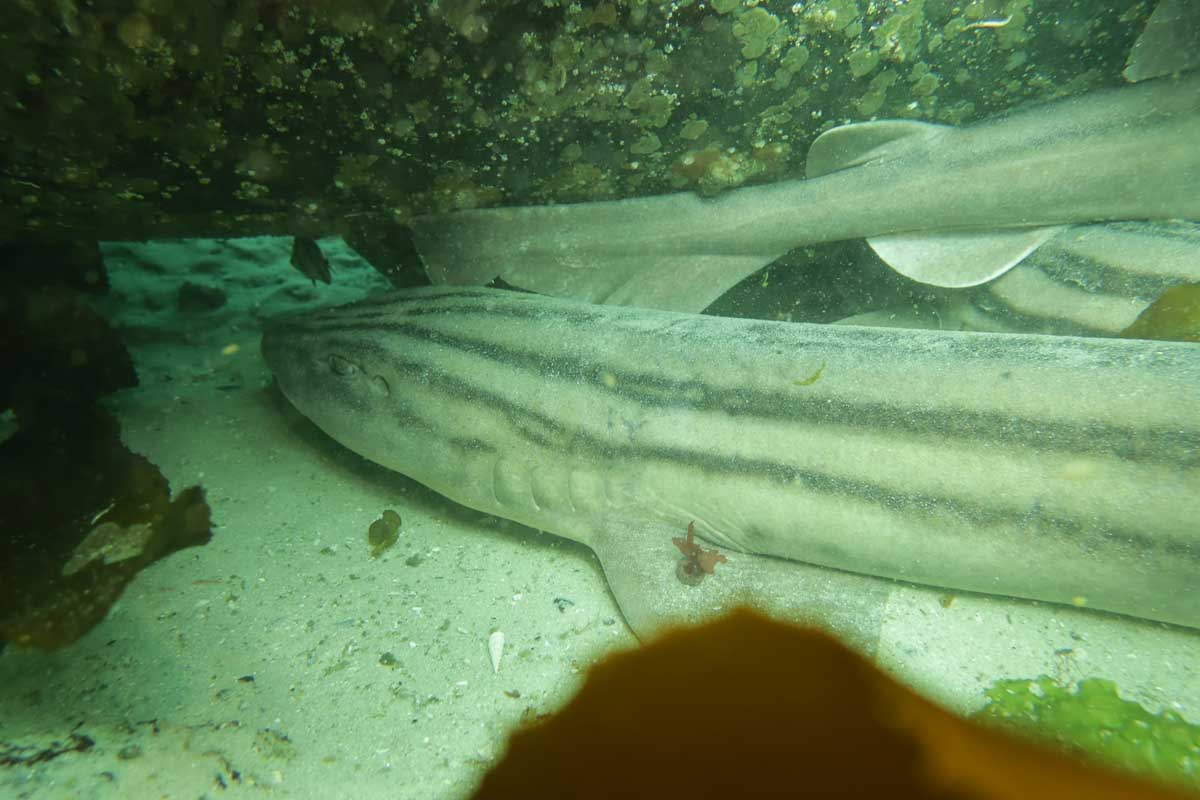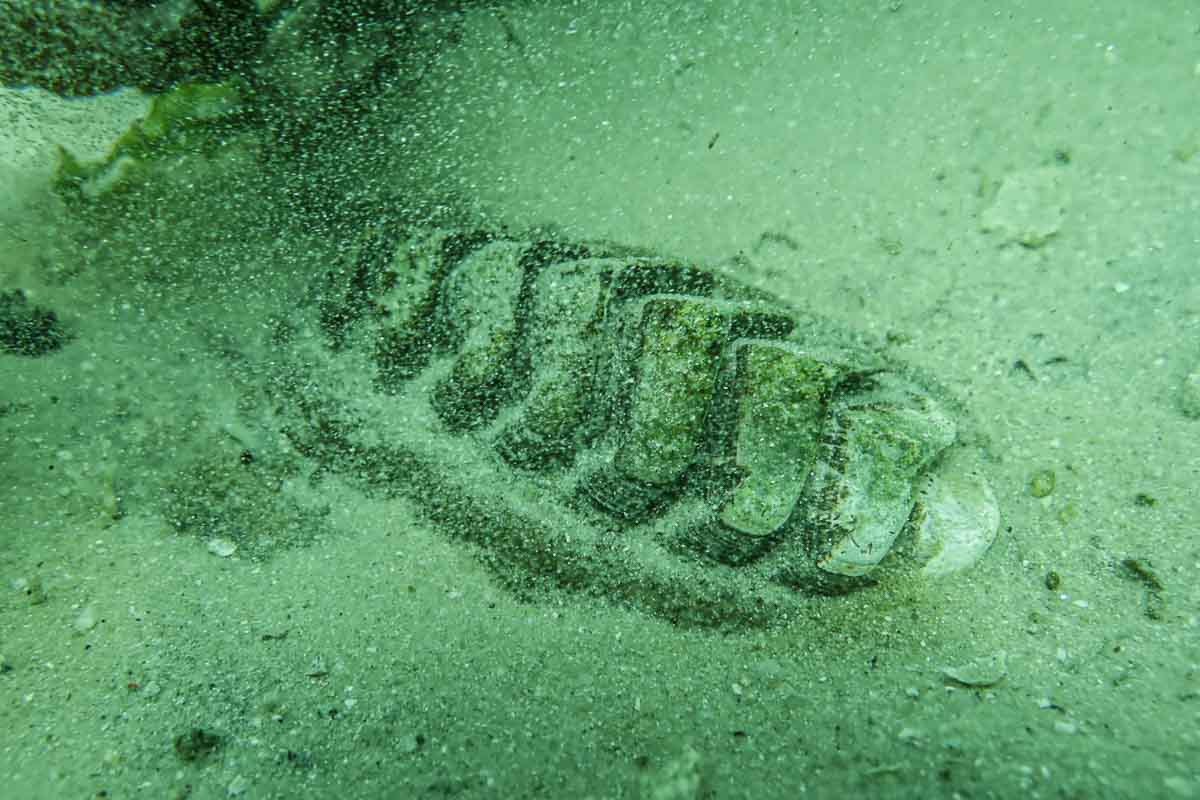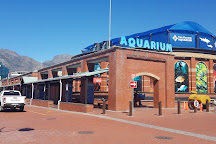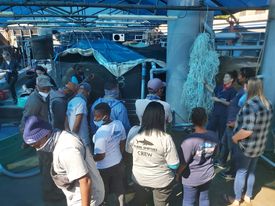As an avid traveler who loves nothing more than to wander and explore different parts of the world, I must say that when I arrived in South Africa, it somewhat felt like home. While this place is, of course, no stranger to having its fair share of strife, I found it a place ripe with life, opportunities, and wonderful people. I found Cape Town to be particularly interesting since it is uniquely positioned at the confluence of the Indian and Atlantic oceans. Just as the warmer and colder currents from each body of water fuse and mingle here at the southern tip of Africa, so too did my various goals and activities!

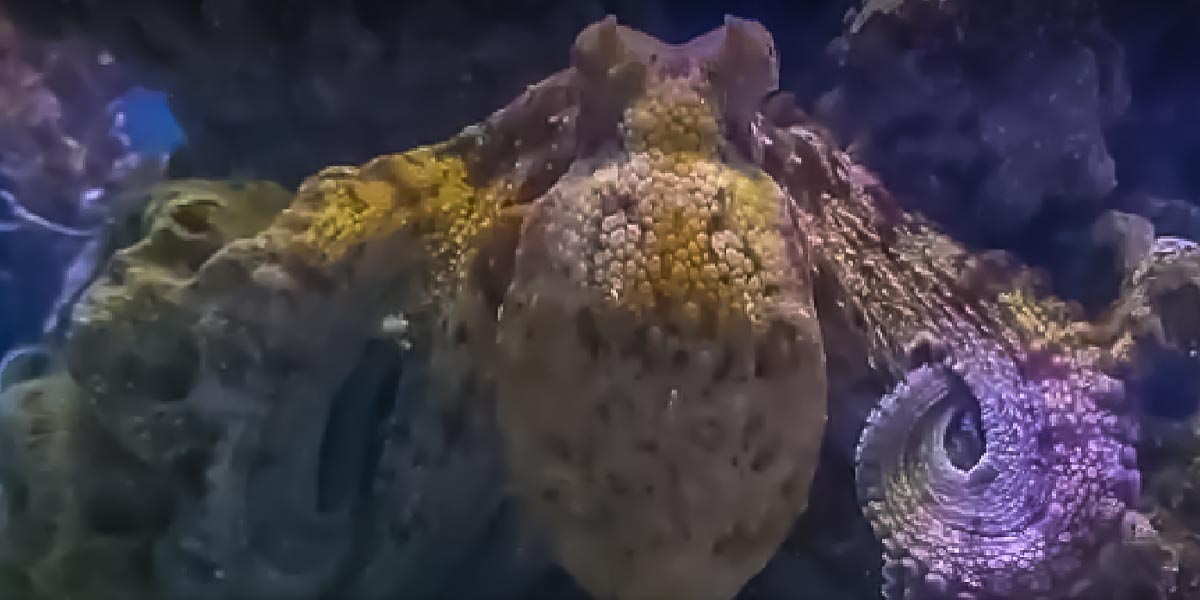

It was initially my love of octopuses that took me to this magical place. After the success of the Netflix Documentary “My Octopus Teacher,” South Africa’s popularity has grown and though my fascination with one of the smartest invertebrates preceded the film, I was more than willing to ride the hype wave. After getting in touch with Jennifer Mathers and connecting with Yannes Landschoff of Sea Change, I was invited to participate in some octopus research with master’s student Gareth Fee. Together we went out to map the location of different Octopus dens to assess the movement, diet, and habits of these elusive but curious creatures. We mapped the site out at a place called Millers Point and then, using special underwater sensors that we attached to inconspicuously placed rocks, we monitored the temperature to help determine any seasonal changes that might affect abundance. Once we were able to identify the permanent octopus dens, every few days we went out to monitor any changes and see if they had relocated, been preyed upon, or if they had begun the process of senescence, in which the body starts to die off naturally. As we surveyed, we also began to collect the fresh shells of deceased invertebrates to gather data on the Octopuses’ specified dietary preferences for each individual. It was so fascinating! Even more incredible, every time we went out to our site, we found at least four Octopuses and at most, almost 18 in one day! At first, I had such a hard time finding the various octopuses in the area without help, but as we did more surveying and after watching Gareth along with some of the other students that were participating, my eyes got better and better at spotting them! At times we even were able to catch some in the middle of snacking. It was wonderful to be involved in a project with my favorite animal. I was happy to be part of such a great team which from time to time included the Octopus teacher himself, Craig!

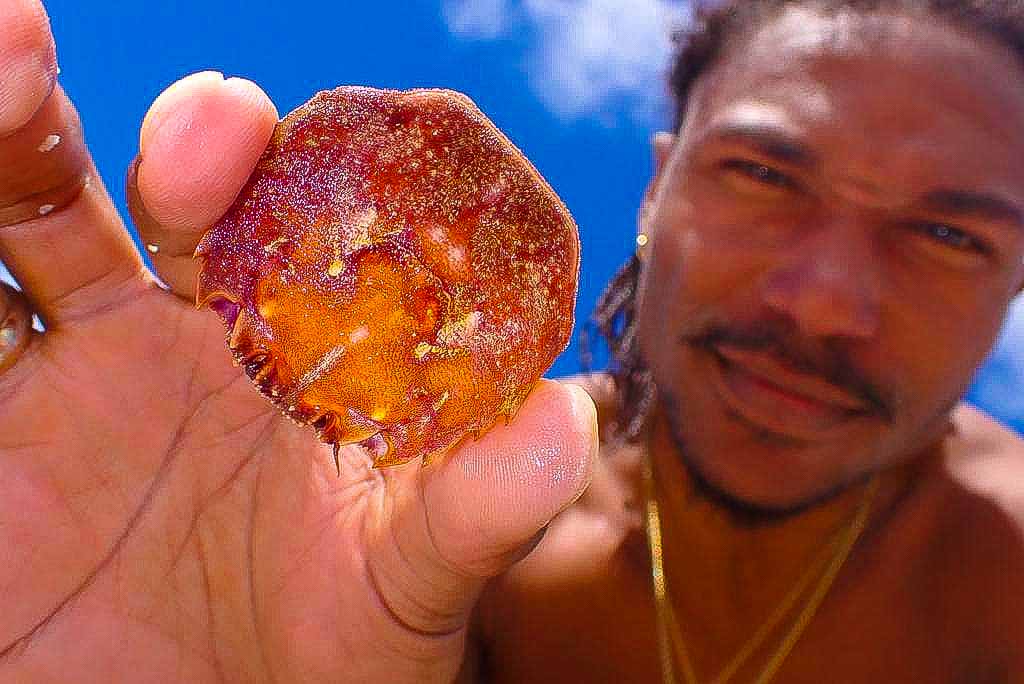
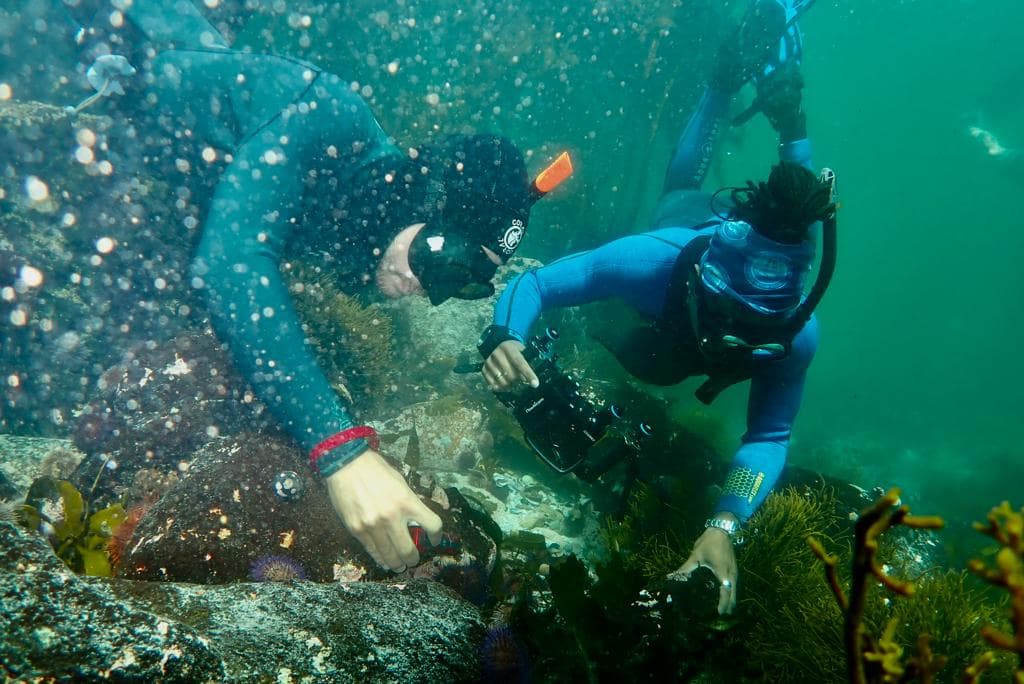

Rowin, Gareth and I collecting and taking photos of Octo food remains
While helping out with whatever I could, research-wise, I was also splitting my time working and helping out at one of the best local dive shops in Cape Town, known as Pisces Divers, headed by the generous Mike Nortje. Not only did Pisces Divers boast an incredibly fun yet professional atmosphere with knowledgeable and patient instructors, but they also do a lot of outreach and dive building for students that are interested in pursuing the underwater world more. I quickly learned that through the dive shop, Mike helps sponsor other groups and organizations in the Cape Town area that are involved with research, outreach, and underwater storytelling.

Pisces Dive Shop!
For instance, Pisces Divers runs an amazing internship program where the interns live together and work in the dive shop to gain experience that helps them go from Open Water Divers to full-on Instructors. I was just so lucky to join in where I could and quickly became part of the Pisces family. Whether it was assisting with varied levels of dive classes, learning how to disassemble and reassemble regs, stocking and organizing dive gear, or helping the interns with dive theory, every day I was discovering something new about myself and those around me. It was an absolute blast and I loved getting to know all of my new peers.

Working on a regulator at Pisces

Helping a student with their class
In return, they were able to help me learn a lot more about the many intricacies in South Africa like how the word, “lekker” means cool, traffic lights are called robots, pies are savory, and how when someone says “now”, they actually mean much, much later. They also took me to some of the most absolutely stunning parts of Fish Hoek, South Africa. Waking up to green mountains adorned with little houses and shops that sat right next to the beachy shore every day, made me feel like I was in a scene from a romance novel.


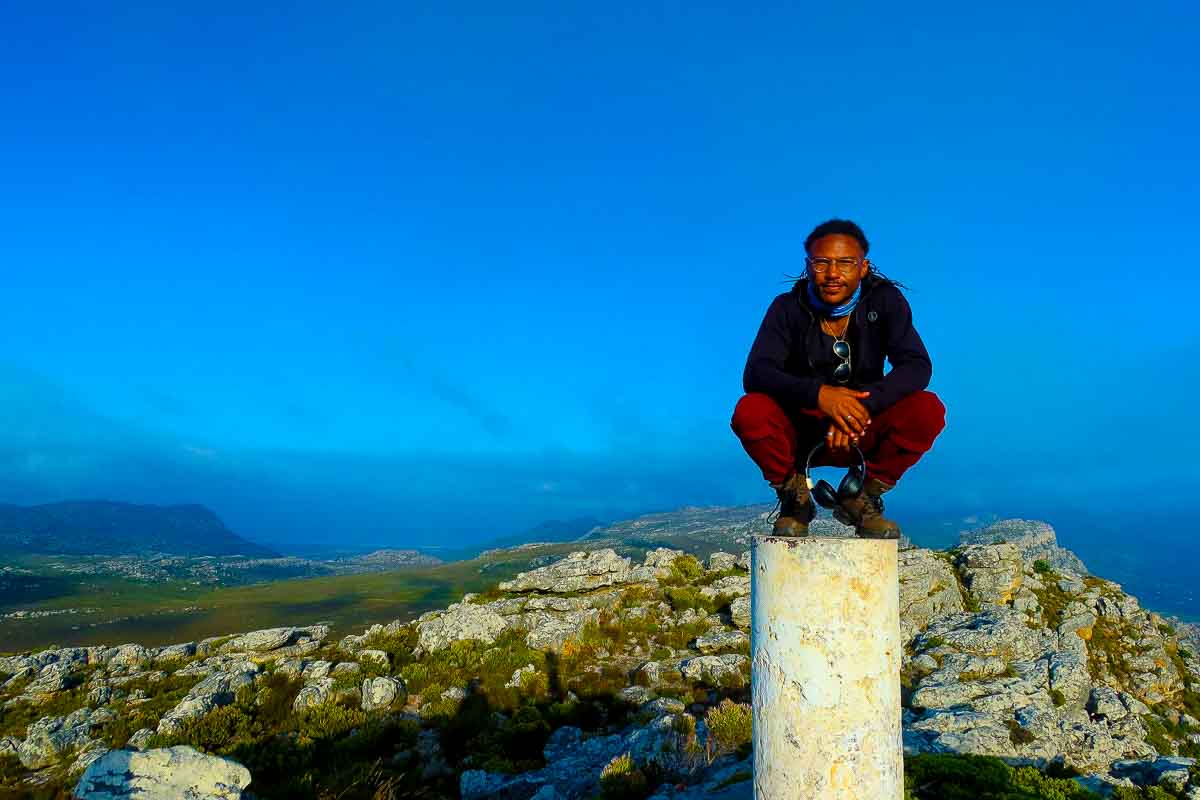

However, I was excited to see even more of South Africa when I was invited by one of my fellow interns and his dad, Tim Carr in Rondevlei Wilderness near Mossel bay for a weekend. Tim was an amazing host and was gracious enough to allow me to stay for the entire weekend on the natural reserve that his family bought and restored with the endemic flora. Tim was also kind enough to let me join him for a day at work where he runs a pelagic bird tour! Though I’m no ornithologist, I was extremely intrigued to see and learn more about how the creatures of the sky interact with the ocean. Tim was a wealth of knowledge and because of him, I learned about many different sea birds in Cape Town.




On the hunt for Sea Birds
While in the area, I also took a quick trip to Mossel Bay where I wanted to investigate more about the touring industry in relation to sharks, but not just any sharks– Great Whites. South Africa was once well known for them and now they are fewer and fewer. Though I had heard multiple theories about the cause of their disappearance, ranging from predatory orcas chasing them away to water temperature changes, it was great to learn the perspective of the people that work more closely with them. After connecting with a shark cage diving company called White Shark Africa, I discovered that once again humans may have played a large role in the decline of the sharks in this area by stripping the food sources. This, coupled with a slow reproduction rate and poaching, means white sharks here are few and far between and that it’s going to take a while before they can effectively bounce back. In light of this, I got to learn about White Shark Africa‘s conservation efforts, volunteer programs, and participate in a shark cage dive myself where they emphasize the value of these animals and the privilege (albeit a slightly scary privilege) of still being able to safely interact with them.




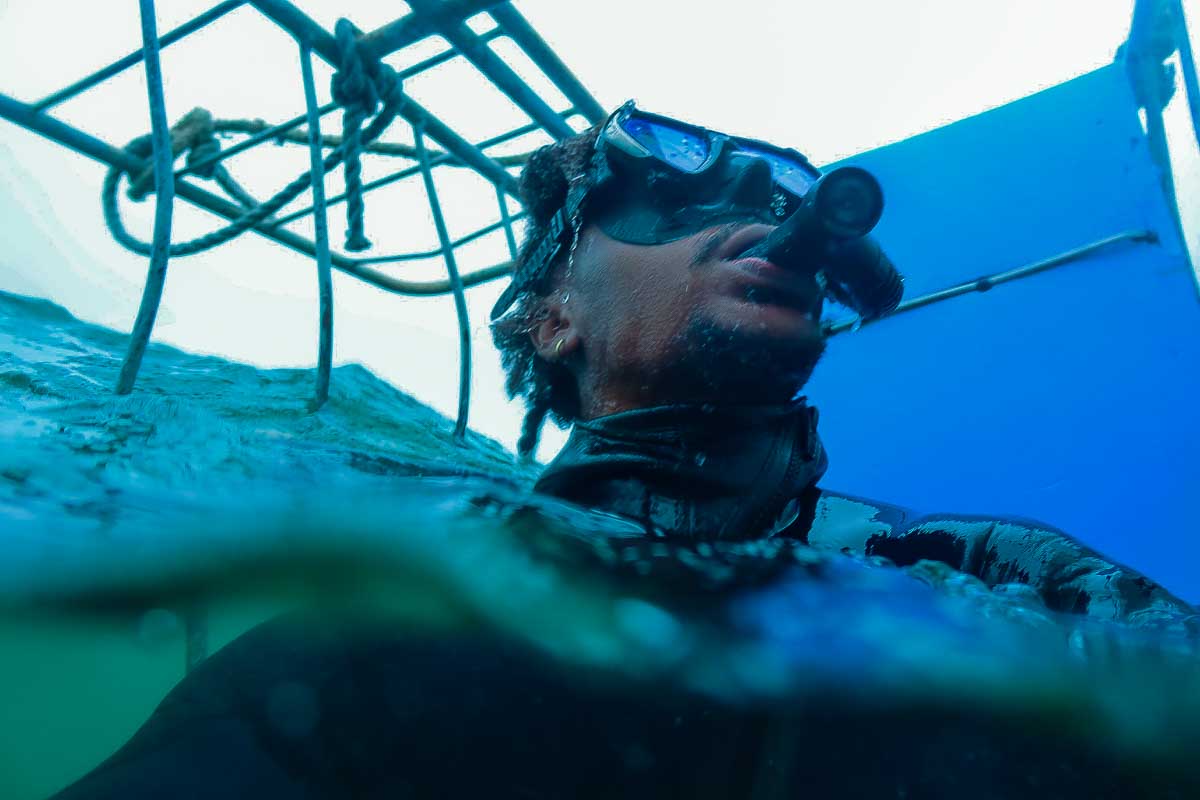
Cage Diving with the Great White

Upon my return to Fish Hoek, I continued helping new diving students. As the initial setup of the octopus research started winding down and my time became freer, I figured since I was already at the dive shop with all the resources and support I would need, I decided it was a good time to do my divemaster certification. I admit I was a bit hesitant at first but in the end, I walked out as a full-fledged Divemaster! None of it would have been possible without the help, patience, and pacing of the Pisces Divers crew! More specifically, I was very happy to work with Kyle and Megan who employed all the best aspects of an instructor during my course. They were always there if I needed any questions answered and helped me out if and when I had any issues or troubles. I couldn’t have been luckier to have them help me get closer to my goals.

Hiking in the Mountains
During my time in South Africa, I was able to do so much, including research, a divemaster course, and an inside look into the tourism industry. However one of my biggest goals during my time in South Africa was to do some outreach. After my experience in Mossel Bay, I was more than excited to get in touch with an organization dedicated to the protection of, and education about, sharks and ocean life known as Shark Spotters. Shark Spotters conducts a myriad of programs with initiatives to not only improve human and shark interactions but help locals learn more about safer fishing practices, educate children and adults about ocean ecology, biology, and conservation, and even work to expose underrepresented groups to the joys and importance of the ocean! My first full-day meeting with them was during a class on fish biology hosted by members from the Two Oceans Aquarium, followed by a dissection where all participants were tasked with identifying the different body parts and were later able to conduct a dissection themselves! It was awesome to see everyone so engaged and even I was able to sharpen my high school and college biology dissection skills. One student in particular, who had worked as a former fisherman, was even able to isolate the fish’s ear bones! So COOL!


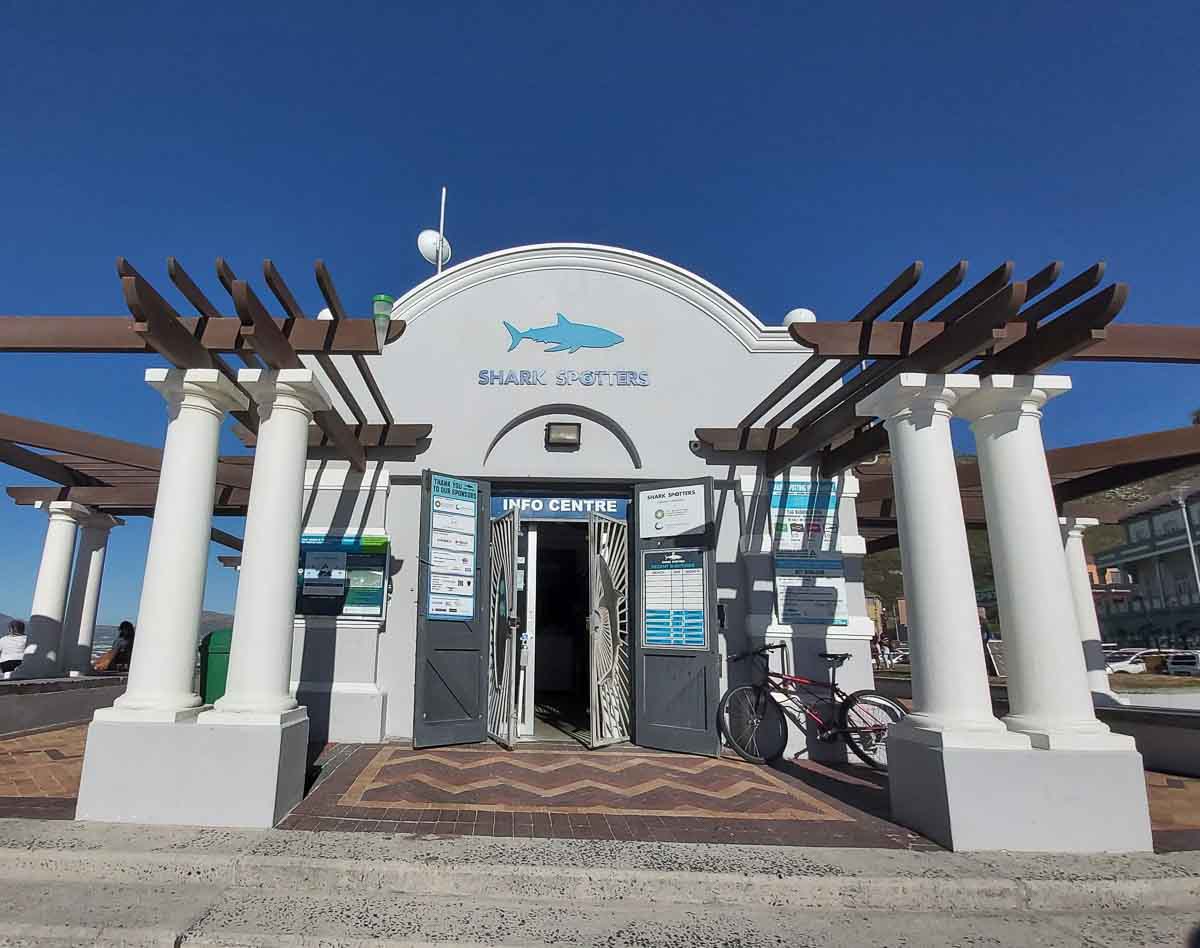

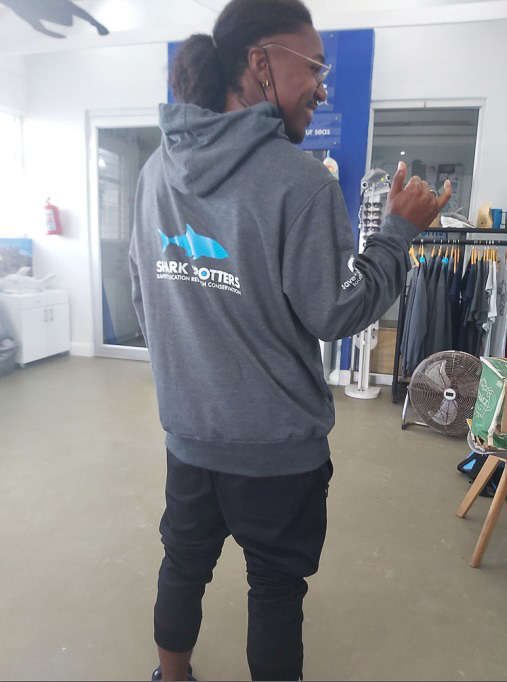
We later were able to take the group out to the rock pools which are small pools along the shore where ocean waves are able to bring smaller organisms into the pool creating a micro ocean habitat. While there I was able to help participants, some of whom had never even snorkeled before, to jump (or slide as there was a slide) in with a mask, fins, and snorkel to explore the oceanic microcosm where all sorts of cool organisms lived.
In addition, I was able to participate in a Shark Spotter hosted beach cleanup and later on, a visit behind the scenes of the Two Oceans Aquarium, where we got to learn about turtle conservation, identify the local invertebrate communities, and observe the actual operations behind the aquarium as well as. The program was such a success! I was so proud and glad to be part of such an insightful and beneficial collaboration.
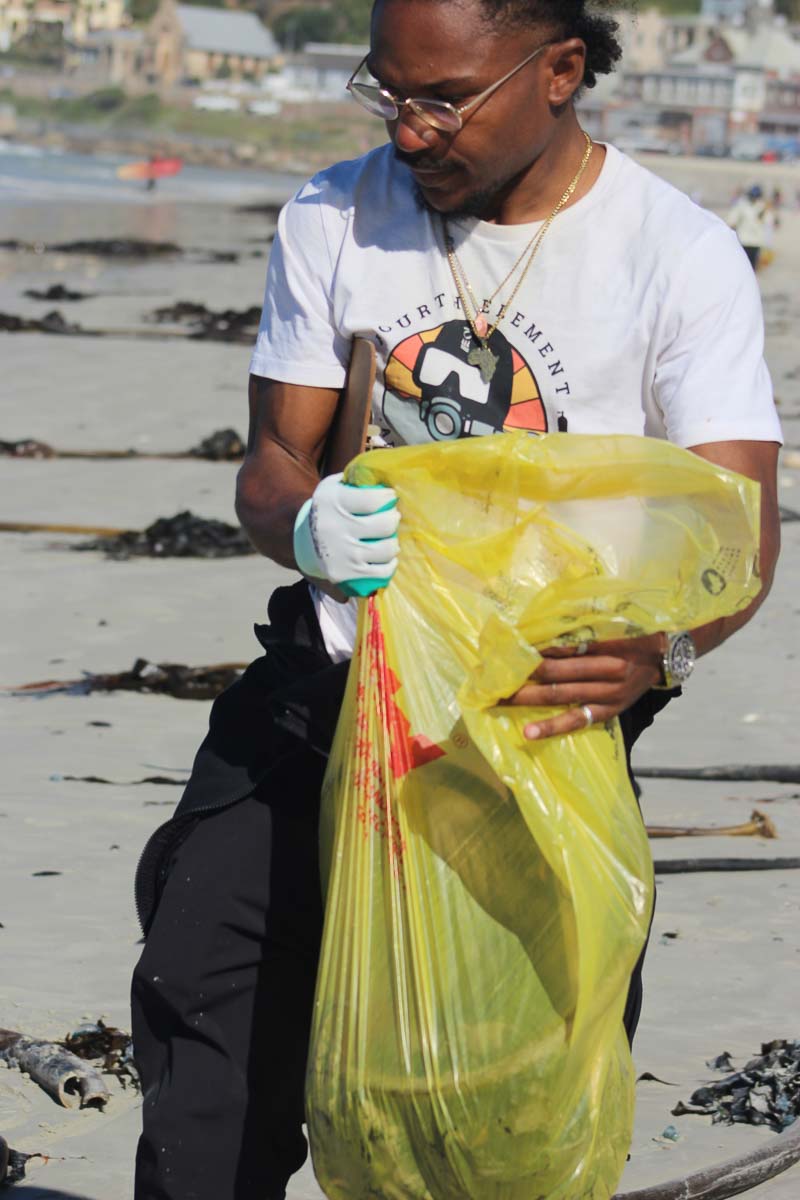
Visiting the Aquarium and helping out with the Beach clean up
Lastly, before it was time to head out, I also ran into another amazing organization called Waves for Change that helps underrepresented disadvantaged youths learn how to swim, surf, and build communication skills to take back to their respective communities. Though I didn’t get to spend too much time with them, I was so impressed and interested in their work that I was able to meet up with the founder and make plans for my return in the future!

Hanging out with the Leader of Waves for Change, Juandre
Overall, my time here in South Africa was really spent well. I’m sad to leave this place and all the amazing people I’ve met along the way, but I will be more than excited to hopefully come back. Thanks to everyone who made my trip magical, and as always, to Rolex, OWUSS, DAN, and my gear sponsors Aqua Lung, Diving Unlimited International (DUI), Fourth Element, Halcyon, Light and Motion, Nauticam, and Reef Photo and Video for making this possible! Also thank you Aiden Carr, Jamila, Craig and practically everyone from Pisces Divers for helping me gather some of these images!
